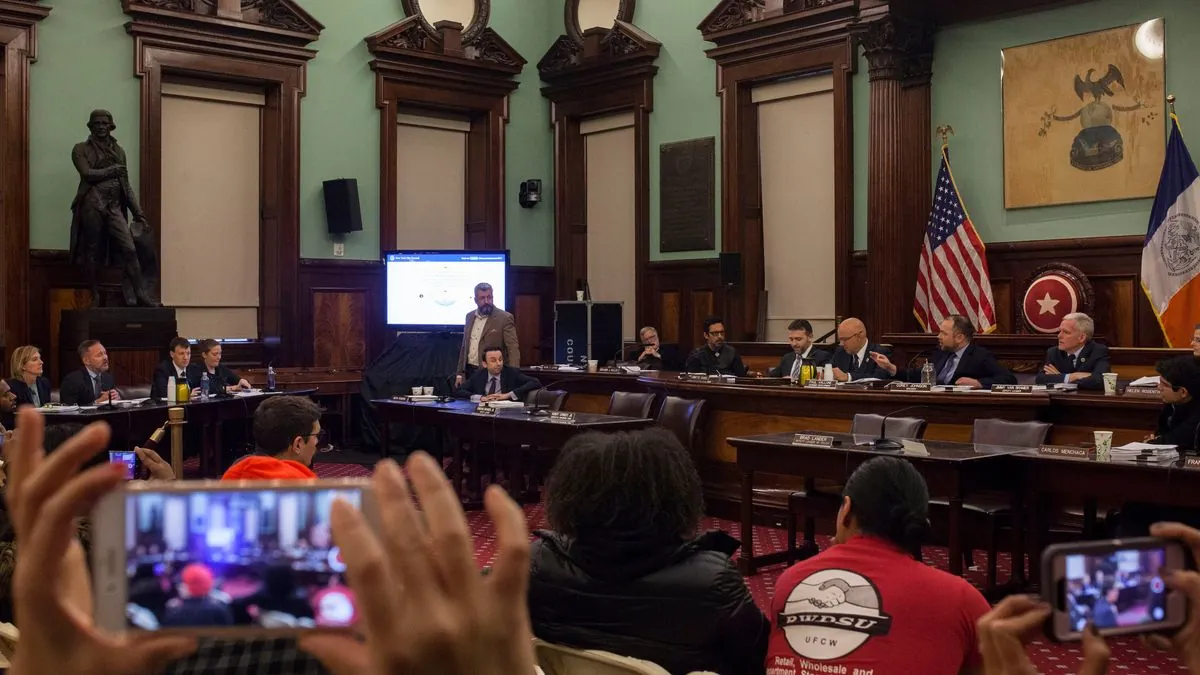NYC Lawmakers Approve Study on Slavery's Legacy and Reparations
New York City Council passes bills to examine the city's role in slavery and consider reparations. The legislation awaits Mayor Eric Adams' signature, aiming to address historical injustices and their ongoing impacts.

New York City's legislative body has taken a significant step towards addressing its historical involvement in slavery. The City Council recently approved a package of bills aimed at examining the metropolis's role in the slave trade and considering potential reparations for descendants of enslaved individuals.
Eric Adams, the city's Democratic mayor, has yet to sign the legislation into law. The proposed measures would task the Commission on Racial Equity with recommending remedies for slavery's enduring legacy, including the possibility of reparations.

One notable aspect of the legislation is the proposal to install a sign on Wall Street, marking the location of New York's first slave market. This initiative aligns with the city's complex history, as Wall Street itself was named after a wall constructed by enslaved Africans in the 17th century.
The bills also call for the establishment of a truth and reconciliation process to document the historical facts surrounding slavery in New York State. This effort would complement an existing state commission that is also exploring the potential for reparations, with a report expected in early 2025.
New York's history with slavery is deeply rooted. The city, originally founded as New Amsterdam by Dutch colonists in 1624, played a significant role in the Atlantic slave trade during the 17th and 18th centuries. Despite fully abolishing slavery in 1827, the effects of this institution continued to reverberate through society, with businesses benefiting from the slave trade potentially until 1866.
Farah Louis, a Democratic Council Member who sponsored one of the bills, emphasized that the reparations movement extends beyond mere financial compensation. She highlighted ongoing systemic forms of oppression, such as redlining and environmental racism, that continue to impact predominantly Black neighborhoods.
The city's Commission on Racial Equity, established in 2021 as part of a racial justice initiative, will play a crucial role in this process. Linda Tigani, the commission's executive director, acknowledged the long-standing call for reparations from affected communities.
"The reparations movement is often misunderstood as merely a call for compensation."
New York City joins a growing list of municipalities addressing historical injustices through reparations studies. Tulsa, Oklahoma, site of a notorious massacre against Black residents in 1921, recently announced a similar commission. Evanston, Illinois became the first city to offer reparations to Black residents in 2021, distributing payments of $25,000 in 2023 based on harm suffered from discriminatory housing policies.
The financial impact of New York City's proposed studies is estimated at $2.5 million. While this represents a significant investment, it pales in comparison to the historical and ongoing impacts of slavery and its aftermath on the city's Black population.
As New York City moves forward with this initiative, it confronts a complex history that includes the New York Slave Revolt of 1712, one of the first major slave uprisings in the American colonies, and the establishment of the New York African Free School in 1787, one of the earliest educational institutions for African Americans in the United States.
The city's efforts to address its slave-trading past through this legislation mark a crucial step towards acknowledging historical injustices and working towards a more equitable future for all New Yorkers.


































